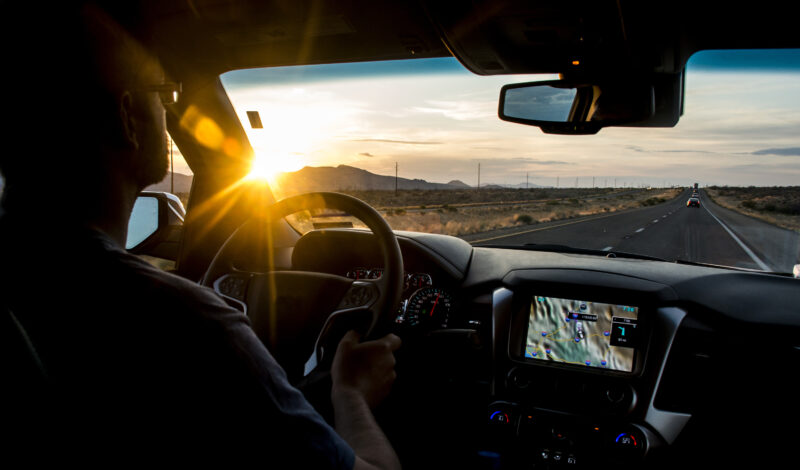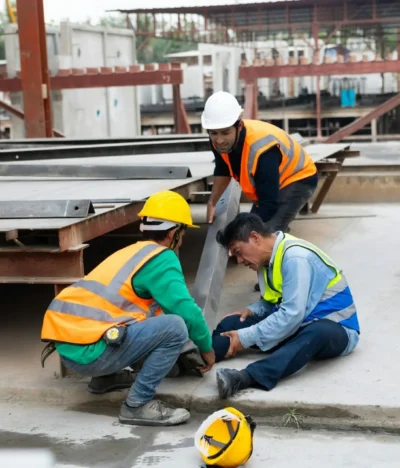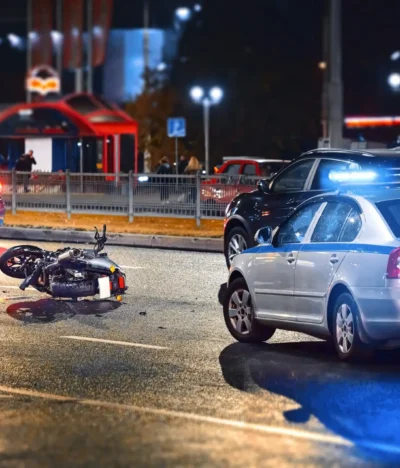Las Vegas is famous for its entertainment, nightlife, and fast-paced environment, and it also has a high rate of car accidents. Understanding the most frequent causes of crashes can help residents and visitors drive more safely.
This guide outlines key risk factors, accident trends in high-traffic areas, and practical tips to avoid collisions. It also shares how The Personal Injury Pros assist victims after a crash.
Key Takeaways
- Distracted driving—especially phone use—is a leading cause of accidents.
- Impaired driving from alcohol, drugs, or medications severely increases crash risks.
- Speeding on highways like I-15 and US-95 contributes to deadly collisions.
- Inexperienced teen drivers need education and supervision to reduce accidents.
- Regular vehicle maintenance helps prevent mechanical failures on the road.
Distracted Driving in Las Vegas
Nevada’s Distracted Driving Laws
In Nevada—including Las Vegas—it is illegal to use handheld mobile devices while driving. This includes texting, calling, or accessing the internet. Drivers must use hands-free technology if they need to make or receive calls.
Key points:
- First offense: Up to $50 fine
- Second offense: $100 fine
- Third and subsequent offenses: $250 fine (and considered a moving violation)
- Fines may double in work or school zones
Exceptions apply for emergency calls or for law enforcement and emergency personnel.
Understanding and following these laws is essential for safety and avoiding costly penalties. Now let’s break down how distractions typically occur behind the wheel.
Common Distractions
Texting or checking directions while driving takes your eyes, hands, and mind off the road. In Las Vegas, distracted driving is hazardous on the Strip, downtown streets, and tourist-heavy corridors like Las Vegas Boulevard. In 2021, distracted driving contributed to 9% of all traffic deaths nationally.
Prevention Tips
- Use “Do Not Disturb” mode on your phone
- Mount your phone for GPS use
- Set up playlists, temperature, and directions before departing
- Ask passengers for help managing in-car tasks
Understanding Impaired Driving
Nevada DUI Laws
In Nevada, driving under the influence (DUI) is a serious offense with strict penalties. According to state law, it’s illegal to operate a vehicle with:
- A blood alcohol concentration (BAC) of 0.08% or higher (for most drivers)
- A BAC of 0.04% or higher for commercial drivers
- Any detectable amount of a controlled substance (e.g., marijuana, cocaine) unless legally prescribed and not impairing driving
Penalties for DUI in Nevada may include:
- Fines
- License suspension
- Mandatory DUI school
- Jail time (especially for repeat offenders)
- Installation of an ignition interlock device
Even first-time offenses can carry significant consequences, and DUI incidents that result in injury or death can lead to felony charges.
Nevada law enforcement agencies conduct frequent DUI checkpoints and roadside testing, especially in busy nightlife areas like the Las Vegas Strip.
Alcohol and Drug Use
Driving under the influence—whether from alcohol, marijuana, or prescription medications—affects judgment, coordination, and reaction time. Nevada has strict DUI laws, but impaired driving remains a significant problem.
Medication Risks
Even over-the-counter meds can cause drowsiness or blurred vision. Always read labels and consult your pharmacist before driving.
Prevention Tips
- Use ridesharing or taxis when drinking
- Designate a sober driver
- Don’t let friends drive impaired
- Track how substances affect your alertness
The Dangers of Speeding
Las Vegas Hotspots for Speeding
Speeding is a major issue on:
- I-15 and US-95
- Sahara Avenue
- Charleston Boulevard
- The 215 Beltway
Drivers often underestimate how much speeding shortens reaction time and increases the severity of accidents. In Nevada, speed-related crashes consistently make up over 35% of all traffic fatalities.
How to Stay Safe
- Use speed-limit alert apps
- Slow down in construction zones or during bad weather
- Leave extra space between vehicles
Teen Driver Risks
Inexperience and Behavior
Teens are more likely to:
- Speed
- Text while driving
- Drive with multiple passengers
- Skip seat belts
Preventive Measures
- Enroll teens in driver’s education programs
- Follow Nevada’s Graduated Driver Licensing (GDL) system
- Establish clear household driving rules
- Model safe driving behaviors
Aggressive Driving and Road Rage
Nevada Laws on Aggressive and Reckless Driving
In Nevada, aggressive or reckless driving is not just dangerous—it’s illegal. Under Nevada Revised Statutes (NRS 484B.653), reckless driving includes operating a vehicle with a willful disregard for the safety of persons or property. Examples include excessive speeding, weaving through traffic, and road rage behaviors.
Penalties for reckless driving in Nevada may include:
- Fines and court fees
- Possible jail time (especially for repeat offenses or if injuries occur)
- Demerit points on your driver’s license
- Driver’s license suspension
Aggressive driving—defined as committing multiple traffic violations in a short span (like tailgating, unsafe lane changes, and ignoring traffic signals)—can also lead to misdemeanor charges and higher insurance premiums.
Las Vegas law enforcement closely monitors these behaviors, especially in high-traffic areas and during peak driving times.
What Triggers It
Aggressive driving can stem from stress, traffic delays, or frustration. It includes tailgating, speeding, unsafe lane changes, and honking.
Staying Calm
- Avoid eye contact with aggressive drivers
- Don’t retaliate or escalate
- Pull over in a public place if you feel threatened
- Report extreme cases to the police
Vehicle Maintenance and Mechanical Failures
Common Issues
Problems like worn-out brakes, bald tires, or broken lights can cause serious accidents, especially in high-traffic areas. The Las Vegas heat can also accelerate wear and tear.
Maintenance Tips
- Get regular brake and tire inspections
- Check lights and signals monthly
- Monitor fluid levels
- Have your mechanic review the engine, steering, and suspension annually
High-Risk Zones in Las Vegas
Accident Hotspots
Watch out for these intersections:
- Flamingo Rd & Rainbow Blvd
- Sahara Ave & Eastern Ave
- Charleston Blvd & Lamb Blvd
Peak Accident Times
- Morning rush: 7–9 AM
- Evening rush: 4–6 PM
- Weekend evenings: 8–11 PM
How to Stay Safe
- Reduce speed in known crash zones
- Drive defensively in tourist-heavy areas
- Keep a safe following distance
- Stay alert at complex intersections
Final Thoughts: Driving Safely in Las Vegas
Las Vegas drivers face unique challenges, such as congested roads, tourist distractions, and fast-moving highways. However, with better awareness of crash causes and innovative prevention strategies, we can reduce the risk for ourselves and others.
If you or a loved one is involved in a car accident, The Personal Injury Pros offer 24/7 legal support. With offices in Nevada and a seasoned legal team, we help clients recover compensation for injuries, lost income, and medical bills.
Frequently Asked Questions
What causes most car accidents in Las Vegas?
The top causes are distracted driving, impaired driving, speeding, aggressive behaviour, and inexperience.
How can I reduce distractions while driving?
Use apps to block notifications, plan routes ahead of time, and keep your phone out of reach.
Is speeding really that dangerous?
Yes, especially in Las Vegas traffic. Higher speeds reduce reaction time and make crashes more severe.
How can parents help teen drivers stay safe?
Encourage driver’s ed, limit nighttime driving, enforce seatbelt use, and model good habits.
Why is car maintenance essential for safety?
It prevents breakdowns that can cause crashes, especially in heavy traffic. Well-maintained vehicles are safer for everyone.
About The Personal Injury Pros
With a strong presence in Nevada and beyond, The Personal Injury Pros provides comprehensive legal support in personal injury and criminal defense cases. Operating on a contingency basis—no win, no fee—our award-winning team offers personalized service, free consultations, and round-the-clock availability.
You can learn more or request a consultation at The Personal Injury Pros.








